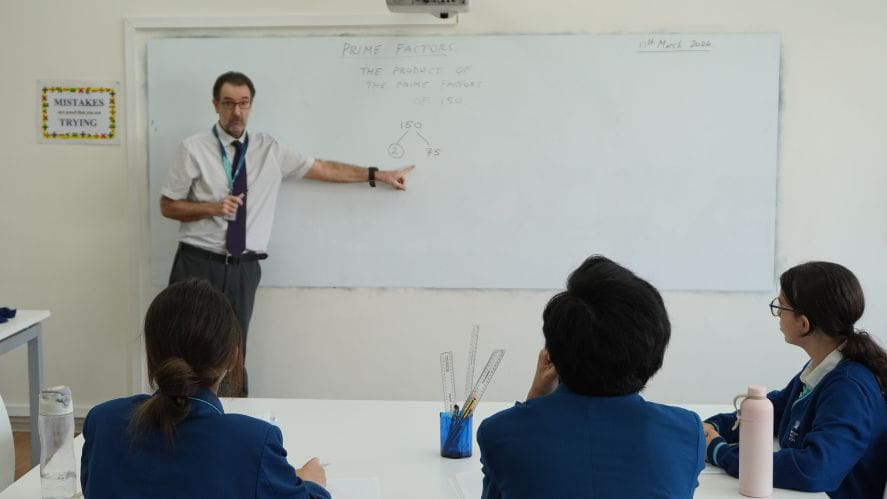We use cookies to improve your online experiences. To learn more and choose your cookies options, please refer to our cookie policy.

While learning how to teach maths at university it was impressed on us that we needed to learn how to ask questions of our students, to get them thinking. I agreed completely at the time and still do, but it seems to me that the real objective here is to get students to ask questions of themselves. To ask themselves questions and to challenge themselves to understand why a process works, where that strange formula comes from. My students often ask me why it is that I don’t often ask them to memorise a formula. In fact, sometimes I actively discourage them from using a known formula and instead insist they break a problem down into known facts and logical process. Of course, the younger they are asked to do this the more quickly and readily they accept it and even embrace it. Maths is then no longer a test of who has a good memory and who hasn’t. Students who have good memories often do well but then hit a plateau when the going gets tough. A good memory can be an real advantage, but what happens when they encounter a problem where they don’t know what method or formula to use? This is where self-questioning comes in: ‘What would happen if I did this?’, ‘Why does this work’, ‘What is the implication of this piece of information?’, ‘What happens if I assign different values?’, ‘Is that scenario realistic?’.
In our exams-based system of education it is easy to argue for rote and memory learning. Indeed, it can produce very good results, for some. Later on though, when problems are new and no longer familiar, perhaps while studying a STEM subject at a higher level or in a technical or numeracy based job, this is when flexible thinking and creative mathematical skills come into their own, collaboration and asking the right questions invaluable.
It might come as a surprise to students, parents, and other teachers alike, but sometimes their maths teacher doesn’t know how to do a problem either! And this is where the skill of questioning really comes in. We ask ourselves the very same questions we are asking our students. Just not out loud, that would make us seem a bit mad.
At the British School Yangon, collaborative and interpersonal skills are developed and encouraged. In our maths classes we encourage collaboration and try to develop self confidence and resilience. By working together, they practice asking questions of themselves and others. Confidence increases and suddenly those difficult looking problems become less daunting and even interesting!
Which brings me on to a recent study which asserts that students process and retain information better when physically writing it down or reading it from books. I’ve always felt it important that technology is not overused in the classroom. Don’t get me wrong, technology has its place. Graphing software for example can illustrate things which are impossible for us to explain or draw. Just as memory learning impedes deeper understanding, use of technology is a crutch that can negatively impact on understanding. Drawing shapes and using proportion and scale are skills learnt by physically drawing objects, much as arithmetic is learnt and improved by mentally calculating. Students come to rely on google to find their answers for them or rely on a calculator to solve equations. Modern calculators have so many features that there is a danger that understanding of mathematical process is replaced by pressing keys. I currently have a partial ban on calculators in some lessons because of this. The study says that the extra time it takes to write meaningful notes gives the brain additional time to absorb and understand the information. It also gives a means of reference for classwork and revision and encourages clear representation of ideas, essential in maths. Write it down folks, you know it makes sense.